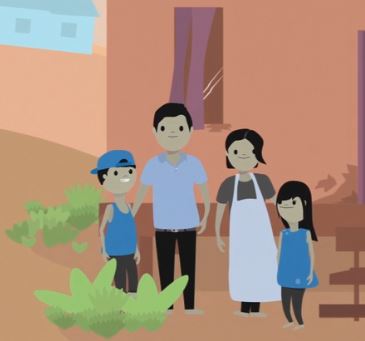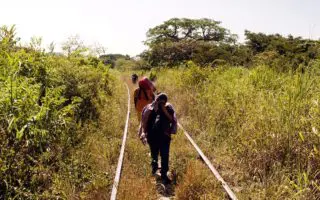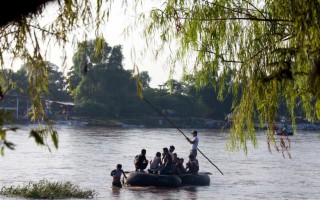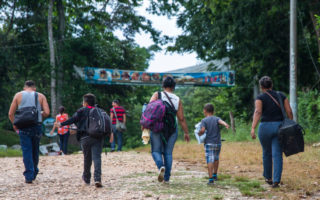Families from El Salvador, Honduras and Guatemala seek safety
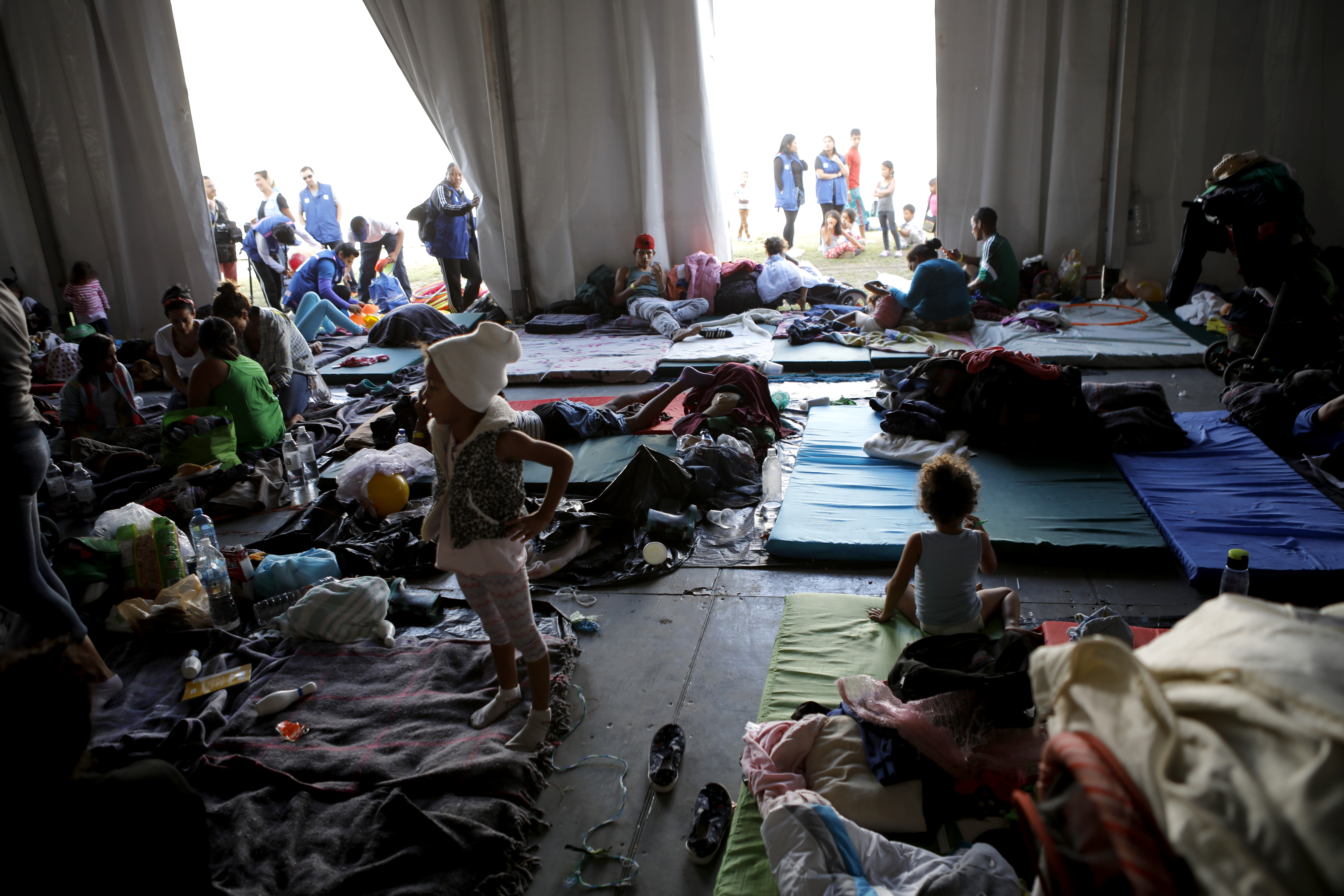
Asylum-seekers and migrants take a rest inside one of the tents at the Centro Deportivo Magdalena Mixhuca temporary shelter for refugees and migrants in Mexico City. ©UNHCR/Daniel Dreifuss
Violence in the North of Central America region, which includes the countries of El Salvador, Honduras and Guatemala, has reached a crisis point.
Heavily armed gangs terrorize local populations with almost complete impunity. Murder, sexual assault, and abductions, as well as widespread forced recruitment into gangs, have driven countless people in the region to seek safety elsewhere.
These are but a handful of the harrowing stories about the people who have had to flee from the North of Central America and their hope to rebuild their lives in peace and dignity.
One family’s journey to safety
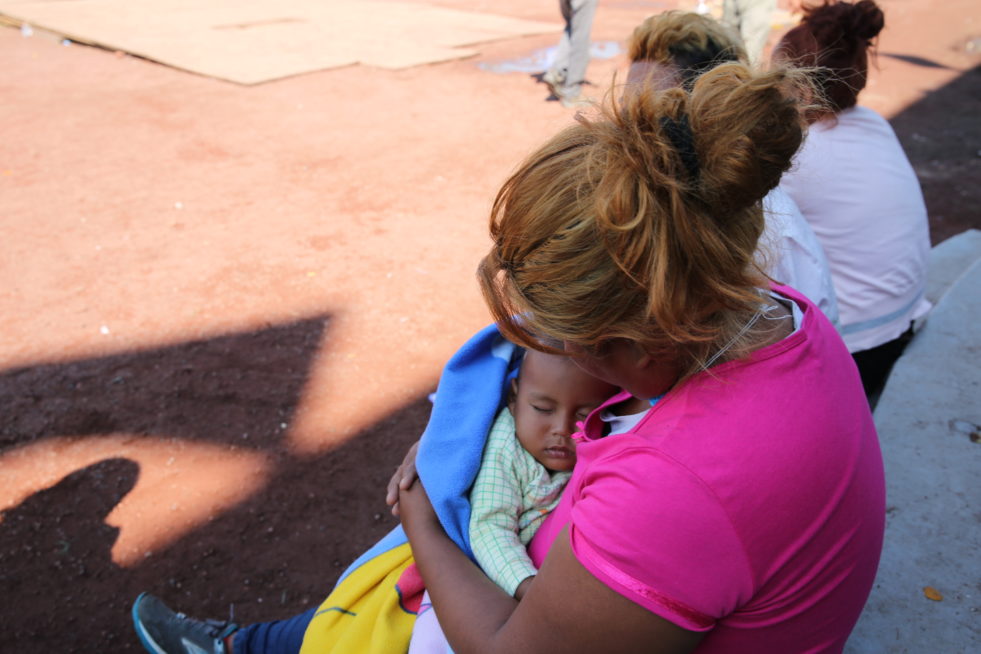
Mitzy and her one-year-old son Luis. ©UNHCR/Alejandra Romo
Mitzy and her family lived in Honduras. Her husband, who made only $8 a day as a construction worker, was forced to pay local gangs a portion of his wage. Every day, the family lived in fear.
“They were threatening me all the time. They knew everything about our movements, our work schedule, when we were going to church,” says Mitzy.
When a gang member demanded that their 14-year-old daughter become his girlfriend or she would be killed, they had no choice but to leave.
Travelling with a caravan toward Mexico, they now hope to seek asylum somewhere where they can build a new life in safety.
North of Central America by the Numbers
- 311,900
The number of refugees and asylum-seekers from the North of Central America, with a 30 per cent increase in 2018
- 55 per cent
The percentage of people in North of Central America countries who have expressed fear about being a victim of homicide. The individuals most at risk are women, children and LGBTQ individuals.
Children on the run
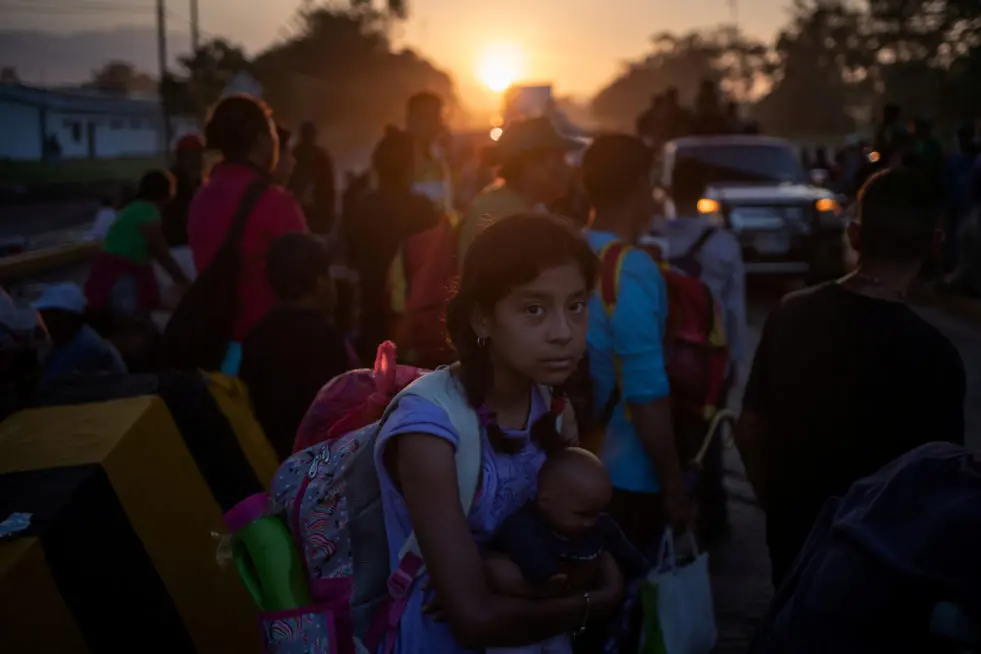
Girl travelling with other asylum seekers and migrants from Central America clutches her doll. ©UNHCR/Adrees Latif, Ritzau Scanpix
As thousands of people flee gang violence, lone children are among the most vulnerable refugees in Central America. UNHCR has reinforced its presence to help increase protection coverage and provide counselling and legal assistance to unaccompanied and separated children.
UNHCR has always assisted unaccompanied minors all over the world.
In 2017, an estimated 173,000 unaccompanied and separated child refugees and asylum seekers were reported worldwide, of whom 138,700 were assisted by 63 UNHCR operations.
In the past ten years, there has been a considerable increase in the number of unaccompanied minors fleeing from Honduras, Guatemala and El Salvador.
In a UNHCR study, 48 per cent of the 400 minors surveyed indicated that they had been affected by organized crime, drug cartels, gangs, or state violence.
|
|
How would you react to the dangers faced by refugee children?Check out the Children on the Run interactive digital experience to follow in the footsteps of young people fleeing gang violence in the North of Central America.Please visit our Children on the Run Experience |
|---|
Second chances
UNHCR helps families with fresh starts
Brandon and Gerry are two brothers forced to flee Honduras because of the pressure of gang recruitment. School-age children in gang-affected communities in North of Central America are being denied education because of violence and displacement. Through the UNHCR’s Local Integration Programme, Brandon and Gerry have started a new life in Mexico, where they were recognized as refugees. Brandon will receive vocational training in a local metal casting foundry, and recently won a scholarship.
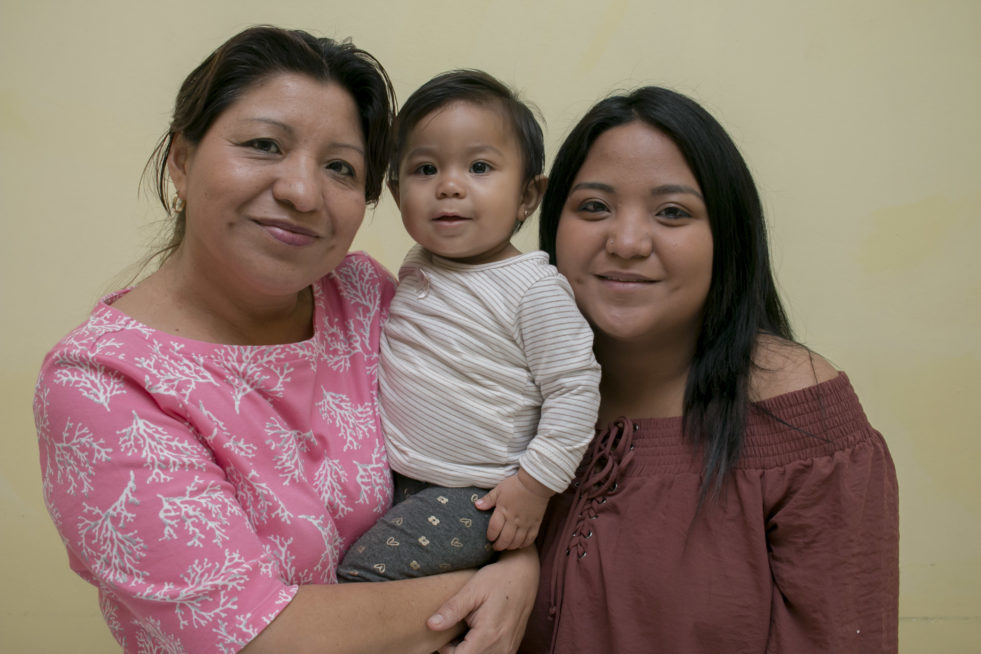
Gloria (pictured at left holding her grandchild) and her daughter Gilma (right). UNHCR/Roberto Carlos Sanchez
Gloria and her daughter Gilma left El Salvador because of gang threats and domestic violence. In their new home in Costa Rica, Gloria is rebuilding her spa business. Thanks to support from UNHCR and local partner organizations she received a small grant to fund her business and help build a new life. “This is a new challenge. I want it to look different,” says Gloria.
What UNHCR is doing
UNHCR is helping to expand shelter capacity by 1,500 beds to help house migrants and asylum seekers in Mexico. UNHCR has also stepped up cash assistance programs, providing 3.8 million Mexican pesos (about $260,000 Canadian dollars) in cash to asylum seekers, allowing them to rent their own accommodations.



